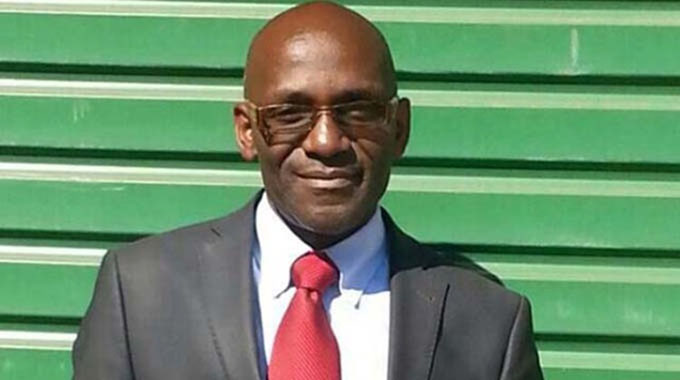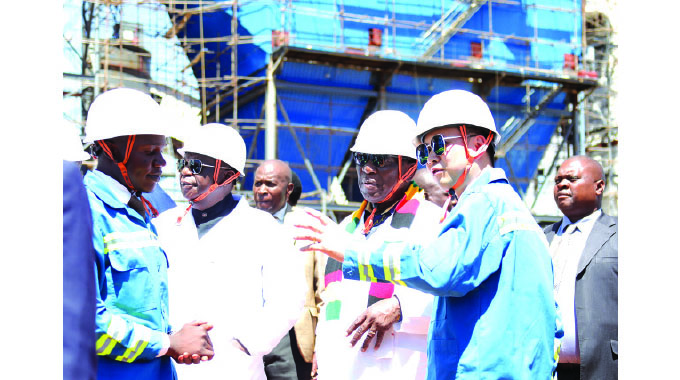Retooling NYS to drive economic growth

Beaven Dhliwayo Features Writer
On August 12 Zimbabwe commemorated the gallant sons and daughters who sacrificed their lives for the freedom of the country.
Globally, the day is also the International Youth Day and serves as an annual celebration of the role of young women and men as essential partners in change, and also an opportunity to raise awareness of challenges and problems facing the world’s youth.
Along with recognising efforts of the world’s youth in enhancing global society, it also aims to promote ways to engage them in becoming more actively involved in making positive contributions to their communities.
This year’s theme is “Transforming education”, highlighting efforts to make education more inclusive and accessible for all youth.
The Goal 4 of the 2030 Agenda for Sustainable Development promises to “ensure inclusive and equitable quality education and promote lifelong learning opportunities for all.”
It thus becomes imperative for the country to revive the National Youth Service (NYS), whose mandate of youth development is not unique to Zimbabwe, but is in line with international, continental, regional and domestic policies and provisions such as the African Youth Charter, the Southern Africa Development Community Youth Development Framework, the Constitution of Zimbabwe, the National Youth Policy, and the Vision 2030.
Without diluting the focus on national integration, new directions should be sought for the NYS to prepare members for entrepreneurship and future leadership.
Better alignment of skills and learning under the scheme to national priorities is appropriate.
NYS should work more deliberately to inspire entrepreneurship and job creation through the scheme.
Entrepreneurial training should be mainstreamed into all NYS activities in partnership with the private sector and relevant State agencies such as Ministry of Youth, Sport, Arts and Recreation.
In collaboration with the NYS, host organisations, agencies and communities should also be compelled to develop workplans which clearly spell out the goals for members to ensure that learning potentials are maximised.
Government, private institutions and other relevant stakeholders must closely engage to define optimal criteria and strategies for deployment of corps into various sectors of national life.
A key priority should be the insulation of deployment from rigging and influence.
Zanu-PF Secretary for Youth Affairs Cde Pupurai Togarepi recently implored youths to focus on rebuilding the economy through entrepreneurship and desist from all forms of violence.
He said his visit to China would see Chinese youths from the Chinese Communist Party (CCP) come into the country to impart entrepreneurship skills.
“Zanu-PF’s main agenda is to invest in youths as they are the leaders of tomorrow. You should be champions in various entrepreneurship skills so that our economy will improve in accordance with our President’s vision of becoming an upper middle income economy by 2030,” said Cde Togarepi during a youth inter-district outreach in Mashonaland Central.
“You (youths) are the ones responsible for rebuilding the economy. My visit to China was very crucial because very soon, there is going to be a team of experts in entrepreneurship who will teach our youths on self-sufficiency and become skilled in various areas, be it sewing, baking, and many more ideas.”
True to Cde Togarepi’s sentiments, the NYS can be used to instil patriotism among the youths and give them have the zeal to develop the nation willingly and selflessly.
The programme, which was suspended in 2009 due to financial constraints, should be financed as it is crucial if the country is to achieve its goal of becoming an upper middle income economy by 2030.
Lessons can be drawn from other African countries that have adopted the NYS and with clear set targets which are bearing positive results in those countries.
For example, Nigeria is among the 106 or so countries with no enforced conscription into its military.
However, it has a mandatory civilian service for its fresh graduates who are less than 30 years of age as at the time of graduation and have not served or are actively serving in any state-run security organisation.
Several countries have the variants of the mandatory national service, with the objectives depending on the national context and needs. Nigeria, Kenya and Ghana are prominent African countries with established NYS schemes.
Several other Western nations also have the compulsory civilian service.
Servicio Social in Mexico is a required community service programme for all Mexican university students.
Students must serve 480 hours of voluntary activity over the course of a four-year undergraduate education.
The goal is to build solidarity among youths and increase collaboration in community development.
The National Youth Commission in South Africa is a national youth service programme and government-sponsored national youth service programme that enlists youth in combating the spread of HIV/AIDS and in reducing youth unemployment.
Servicio País in Chile is a competitive selection civil service programme for university graduates with the goal of decreasing rural poverty. Select professions are recruited to the programme such as lawyers, engineers, and medical professionals.
If chosen, graduates serve 13 months in a rural area. They practise their professions and also build relationships with local people.
Typically, the mandatory civilian schemes focus on improving internal security, nation-building and disaster response as in the case of Kenya.
Newly qualified graduates in Ghana and Nigeria are given the opportunity to have practical exposure on the job, both in the public and private sectors, as part of their civic responsibility to the state.
This provides host organisations the opportunity to satisfy their manpower needs. Likewise, it affords communities that would otherwise have difficulty in accessing mainstream development initiatives a chance to access improved social services through youth service to the community.
Whilst it may be costly for the country to fully revive the NYS given the prevailing economic situation, a thorough reassessment is necessary with a view to repositioning and making it more relevant to Zimbabwe’s prevailing circumstances.
Going forward, the thrust of the NYS should prepare the country’s youths for future leadership and align their orientation and skills to national priorities.
In other countries with similar schemes, there is strong collaboration with the host organisations and benefiting communities which Zimbabwe should emulate.
Proponents of NYS across the globe also suggest that with the prevailing challenges facing countries such as insecurity of life, properties and food shortages, perhaps it might even be optimal to have a two-year national service.
One of those years could be devoted to paramilitary training. This would ensure that the nation has a pool of trained reservists to supplement existing capacities for emergency response.
The military would have to be restructured to supervise this.
The second year would then focus on mainstreaming the NYS members into specialised skills in science, technology, education, health, communications and leadership among other key areas.
During this period some could be matched to job vacancies whilst others could be encouraged to start-up businesses as individuals or in groups.
Therefore, the NYS programme in the country should be restructured to offer a seamless transition from the world of structured learning to the world of work.
It should become the major shift which all educated young Zimbabweans are given the vision to first encounter and appreciate formal work while offering them a chance for national service.
Additionally, the programme should be structured in a way that offers all graduates clearer guidance to enable them reflect intelligently on their career options.
Also critical when reviving the scheme is to include all youths including young artisans who have assimilated vocational skills in agriculture, carpentry, fashion, hospitality, metalwork, beauty therapy and even entertainment.
This will help mobilise a greater pool of skills that can be effectively deployed across the country for balanced development.
In reflection of national challenges, the NYS should move closer to a problem-solving orientation by mobilising the youth to tackle practical challenges head-on.
These include the need to reduce youth unemployment and expand the functional public infrastructure stock.
This, however, requires collective efforts by all relevant organs of the State, private institutions and civil society in coming up with joint strategies to optimise the NYS programme improve its influence to national development.
Moreover, accentuating leadership and entrepreneurial skills through the scheme will directly contribute to the upscaling of present capacities for grassroots development.
Additionally, NYS is in line with the “AU Roadmap on Harnessing the Demographic Dividend through Investments in Youths” which states that there is need to expand vocational training opportunities for young people to enhance their employability (including self-employment), productivity and competitiveness as stated in the Continental Strategy for Technical, Vocational Education and Training (TVET CS).







Comments